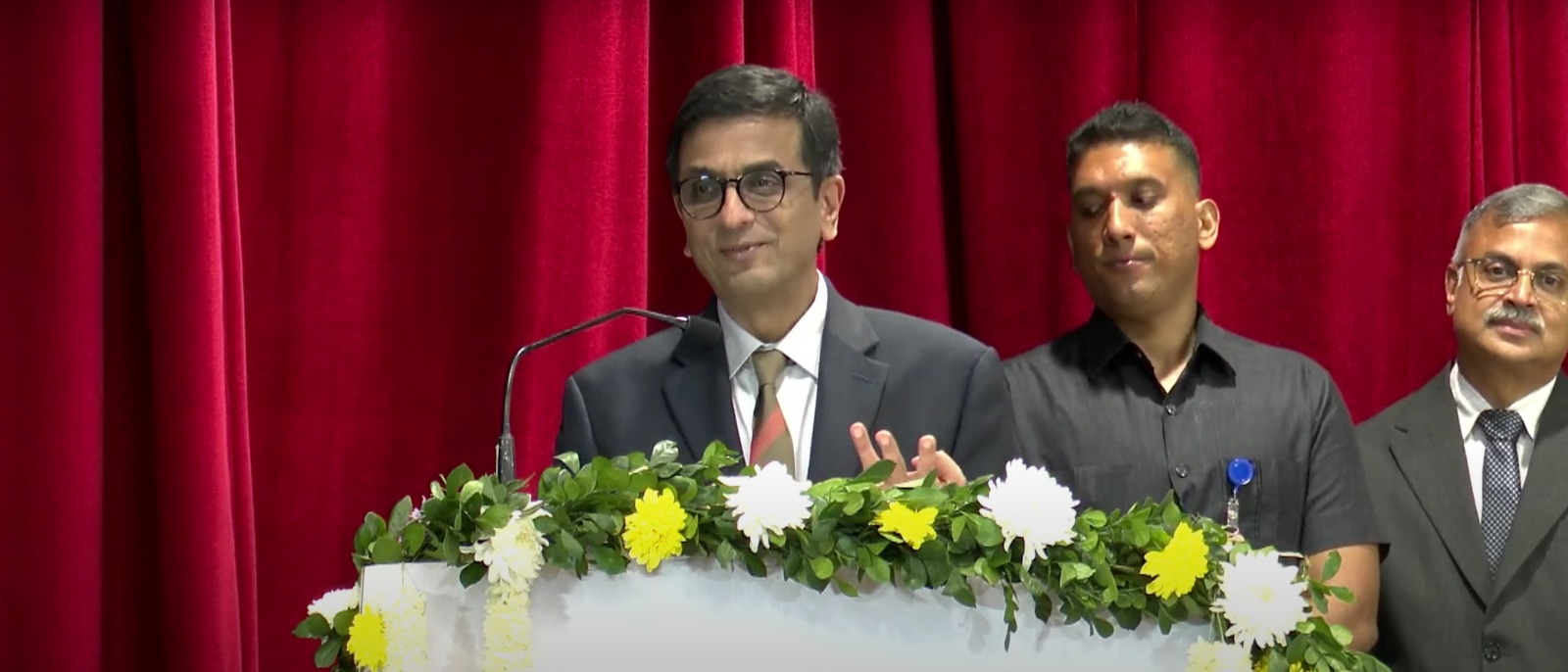Polarization Being Faced By The World Due To Increase In Growth of Social Media and Intolerance In Society: CJI DY Chandrachud

The Chief Justice of India attended two events on Friday in Mumbai. In the afternoon, the CJI was present at the inauguration of the Central Administrative Tribunal in Mumbai. Later in the evening, the CJI attended the 2023 Jamnalal Bajaj Foundation Awards for promoting Gandhian Principles
The Chief Justice of India Dhananjaya Chandrachud on Friday said that the polarization the world is witnessing is due to the growth of social media and intolerance in society.
“Much of the polarisation we see today across the world, between the right, left and the centre and India is no exception, is also marked by the growth of social media, the sense of intolerance among communities and the short attention span which the younger generation has. But truly, this is not an isolated phenomenon, which is a product of say free market and technology. There is something more profound which is going on. It is in the ability of our societies to not realise that at the given point the true worth of self-sacrifice in pursuit of a wider community goal of enabling those who are the margins of our society, to realise a better future for themselves.” the CJI said.
The Chief Justice of India attended two events on Friday in Mumbai. In the afternoon, the CJI was present at the inauguration of the Central Administrative Tribunal in Mumbai. Later in the evening, the CJI attended the 2023 Jamnalal Bajaj Foundation Awards for promoting Gandhian Principles.
During the inauguration of the Central Administrative Tribunal, the CJI remarked that there is a constant tussle over who will have ultimate control over the appointment of judges.
“Our tribunals are by and large plagued with problems, and then we ask ourselves was it really necessary to constitute so many tribunals because you do not get judges. When you get judges, vacancies arise which are kept pending for a long period of time. There is this constant tussle of who will have ultimate control over the appointment of judges,” the CJI said.
Furthermore, the CJI remarked that the inability to obtain a timely outcome may impact the practice of both male and female lawyers.
“Inability to get a timely outcome may impact the practice of a male as well as female lawyer. But everything else being equal, in a society that associates intellect and calibre with gender, the impact of delay will be greater for a woman lawyer, than a male lawyer,” the CJI remarked.
Chandrachud further stated that female lawyers are not only fighting their immediate opponents in court, who may benefit from the delay, but are also combating years of gendered perceptions about their innate ability to be a lawyer.
Additionally, the CJI mentioned that in states like Maharashtra, the government does not interfere with the work the judiciary does, and they accept outcomes whether favourable or not.
“In States like Maharashtra, we do not realise the importance of the work which we as judges do in these institutions of justice. That is the beauty of this state. We should not ignore the favourable conditions in which we work as opposed to the rest of the country. There is also a culture of governance in the country, where the governments successfully have left the judiciary alone. They do not tinker with the work the judiciary does. They accept outcomes that are favourable or not. Because that is the culture of Maharashtra,” the CJI remarked.
